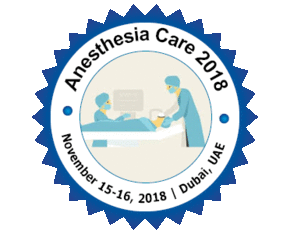
Badri Prasad Das
Banaras Hindu University, India
Title: Use of tolvaptan in neurocritical care unit: How we manage severe traumatic brain injury
Biography
Biography: Badri Prasad Das
Abstract
The recent Brain Trauma Foundation guidelines did not carry forward its earlier recommendations on osmotherapy in severe traumatic brain injury (TBI) because of insufficient high-quality evidence from comparative studies. HTS is no more advantageous than mannitol in maintaining hyperosmolar state and controlling ICP, which might be due to urinary sodium loss, which curtails its superior osmolar effect. We did a study to explore the impact of tolvaptan when added to HTS on osmolar efficacy in such patients. A single-centric, prospective, double-blind, investigator-initiated clinical comparative trial was conducted between June 2017-June 2018 at Trauma ICU,IMS-BHU,Varanasi, in which 76 adult patients with severe TBI belonging to age group 15-70 years, receiving aliquots of 2.5ml/kg of 3%HTS for refractory-ICH, were randomized to receive tolvaptan (Group A) or placebo(Group B) to achieve target ICP <22 mmHg and CPP >60mmHg. Addition of tolvaptan increased serum sodium and osmolality significantly in a sustained manner throughout the study period(p=0.03 and 0.02, respectively), which translated into better ICP control with lesser boluses of HTS(p=0.01). The outcome parameters (duration of hospital stay 22 ± 10 vs 42 ± 11 days; p=0.04) and unfavourable GOS (GOS=1 to 3) at 6 months (10/40 vs 18/36;p=0.02) and mortality at 6 months (8/40 vs 14/36;p=0.03) were better with tolvaptan use. Here we describe how we manage severe TBI patients in our high-volume trauma center, with use of tolvaptan which not only curtails the effect of urinary sodium loss, thereby increasing the osmolar efficacy of HTS but also leads to better ICP control in severe TBI, translating into better GOS with a mortality benefit.

